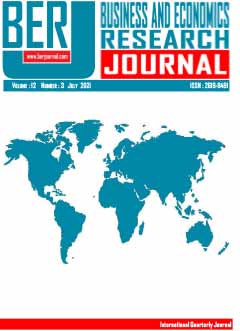Geleneksel Olmayan Para Politikası Araçlarının Finansal İstikrar Üzerindeki Etkisi: Türkiye Uygulaması
The Impact of Unconventional Monetary Policy Instruments on Financial Stability: The Case of Turkey
Author(s): Sencan Felek, Resat CeylanSubject(s): Financial Markets
Published by: Adem Anbar
Keywords: Monetary Policy; Interest Rate Corridor; Exception Day Application; Principal Component Analysis (PCA), Structural VAR;
Summary/Abstract: The global crisis, which started in the United States of America in 2007 and felt its impact in Turkey in 2008, revealed the fact that financial stability should be considered as a macroeconomic goal. Therefore, central banks have developed new monetary policy instruments within the framework of macroprudential policies. In the context of these developments, the main purpose of this study, in the aftermath of the 2008 global financial crisis, by using the 2011M1-2019M6 periods of monthly data, is to investigate the effects of unconventional monetary policy instruments implemented by the Central Bank of the Republic of Turkey (CBRT) on financial stability. In the study, the effects of interest rate corridor, exception day application, and credit expansion, which are unconventional monetary policy instruments, on the financial stability index calculated with the help of principal components analysis are revealed by the SVAR method. Financial stability index, one-week repo interest rate, nominal exchange rate, and domestic loan volume variables are used in the analysis. According to the findings, the interest rate corridor and exception day application, which are among the unconventional monetary policy tools used by the CBRT, are effective in ensuring financial stability. The monetary transmission mechanism works with the exchange rate channel.
Journal: Business and Economics Research Journal
- Issue Year: 12/2021
- Issue No: 3
- Page Range: 537-555
- Page Count: 19
- Language: Turkish

